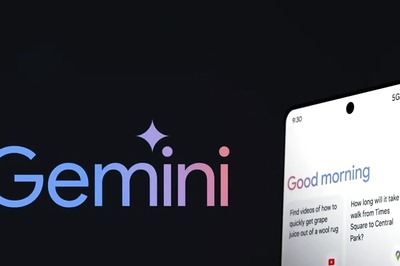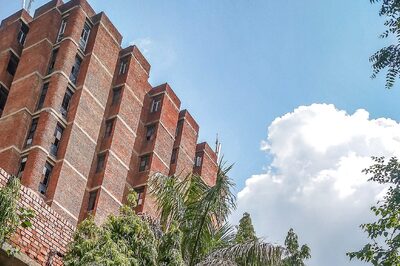
views
they may derive in elections.
Election manifestos in Tamil Nadu are unique. No other state in India comes close to Tamil Nadu in this regard. These manifestos are an exercise in great imagination. They simultaneously present a great vision for the future, offer mundane material benefits, and also equally provide outlandish promises which no one believes will ever be fulfilled. Everyone looks forward to these manifestos, because at least some of what has been promised get done.
The DMK in 1967 offered every ration card holder around 4.5 kg rice for a rupee. After winning the elections, it could not deliver on its promise. But since then, the finances of the state have improved so much that AIADMK in its 2011 election manifesto offered 20 kg rice free to every ration cardholder. It delivered too. The welfare scheme will continue even if the government changes.
Tamil Nadu has gone way beyond promises on food. The drastic jump happened in 2006, when the DMK offered a free colour TV to every home. I was incredulous and wrote about it in my blog then, doing back-of-the-envelope calculations and showing how much this would impact the finances of the state.
The DMK won the elections spectacularly and actually procured the TVs and made them available to all the beneficiaries over a 5-year period. Since then parties have promised mixers, grinders, fans, laptops, etc., and upon winning the elections, have procured them and distributed them effectively.
One can level many criticisms at these freebie offers. The impact on the budget deficit is one. The quality of the product offered is another. In many cases, these products are immediately sold in the secondary market and the money used up in consuming liquor. Tamil Nadu has been running a Universal Public Distribution scheme and the media has observed rich people driving expensive cars stopping by the ration shops to pick up these free products.
What they do with them is a different question. These procurements offer great opportunities for corruption. Whenever there is a cash disbursement, it is never done through the banks. It is always distributed at the ration shops and this involves local-level corruption.
Besides offering household electronic goods, the parties have also waived loans repeatedly, provided free bus passes to students and women, and provided marriage assistance for girls in the form of gold and cash, cash assistance for pregnant women, subsidy for women buying two-wheelers, and so on.
The DMK and the AIADMK released their manifestos for the 2021 election in the last two days and they make fascinating reading. As expected, we see promises on loan waivers, increasing cash assistance to existing schemes, introduction of new schemes with cash assistance, reduction of prices, etc. Then there are promises that do not involve any cash component, covering Tamil language or offers to specific caste groups.
The flavor of this election is the Universal Basic Income (UBI). The DMK first released a vision document which offered an assistance of Rs 1,000 per month to the woman of the family. The AIADMK, the very next day, said it will offer Rs 1,500 per month and six cooking gas cylinders free every year.
The DMK released the manifesto, which expanded on its Rs 1000 promise, with reduction in the price per litre of petrol by Rs 5, diesel by Rs 4 and a gas cylinder by Rs 100. The AIADMK added to its Rs 1500 per month and 6 gas cylinders promise with a washing machine, solar cooker, and a free cable connection.
The DMK is also offering a Tablet PC with 4G/5G connection and 10 GB data to every school student. The AIADMK is offering 2 GB a day of data to every college student. Both have offered to waive various loans, most notably education loans.
Would they have the finances to deliver on all or some of the above?
Do the finances of the state allow paying a UBI of Rs 1000 or 1500 to 2 crore ration cardholders? That translates to anywhere between Rs 24,000 and 36,000 crores per year. The annual expense of Tamil Nadu is approximately Rs 300,000 crore, so it makes for an increase of 10 per cent straight away.
The current direct debt of Tamil Nadu is around Rs 5,00,000 crore and another Rs 400,000 crore is owed by corporations owned by the state government, most notably the loss-making TANGEDCO, the power generation and distribution company, which alone has a debt of around Rs 113,000 crore.
The DMK has also promised to create 5.5 lakh jobs in the government sector. The AIADMK has gone one step ahead and has promised a government job to every household! This is outlandish. Every page of the manifestos has a scheme and money allocation and it is impossible to cover all of them in any article. There are promises for every significant group – women, farmers, fishermen, weavers, and so on.
The DMK is following Haryana’s path through a 75 per cent reservation for Tamils in the private sector. The party is also suggesting introducing caste-based reservation in the private sector. The AIADMK is talking about a caste-based census and re-assigning reservation based on the result. This is bound to cause considerable caste-based mobilisation across the state.
The manifestos also present signals to specific communities or groups to assuage their feelings. The AIADMK is worried about the loss of Muslim minority votes because of its partner the BJP, and is promising to demand the removal of CAA by the central government. The DMK has a slew of promises: from the removal of NEET, the medical entrance exam, to moving education from concurrent list to the state list. The DMK has a lot of discussion on federalism, Tamil as an official language in the central government and as a court language for the High Court and Supreme Court.
The DMK has a specific section about setting up a commission to investigate the circumstances surrounding the death of former CM Jayalalithaa, besides setting up special courts to go into corruption allegations against the AIADMK ministers. Obviously, the AIADMK has nothing in this regard as they have been in power for the last ten years.
Do these manifestos have an impact on voting? The 1996 DMK offer of colour TV apparently had a great impact. P Chidambaram of Congress called DMK’s 1996 election manifesto as the man of the match. At that time, it was a novelty. It was a daring offer and one that was delivered by Karunanidhi.
Since then, Jayalalithaa and Karunanidhi have offered and delivered something innovative every election. People believe that the government can make good on such promises. But then, they believe that both parties can do so, as both have done so. This would mean, neither has an advantage.
It is, therefore, left to the electorate to consider various other options to vote for a specific party. It is back to anti-incumbency, caste arithmetic, specific candidates in a constituency, high voltage campaigning, and one other special ingredient – a direct bribe transfer. We will look into this next.
This is the third in a series on Tamil Nadu elections by the author.
Read all the Latest News, Breaking News and Coronavirus News here




















Comments
0 comment